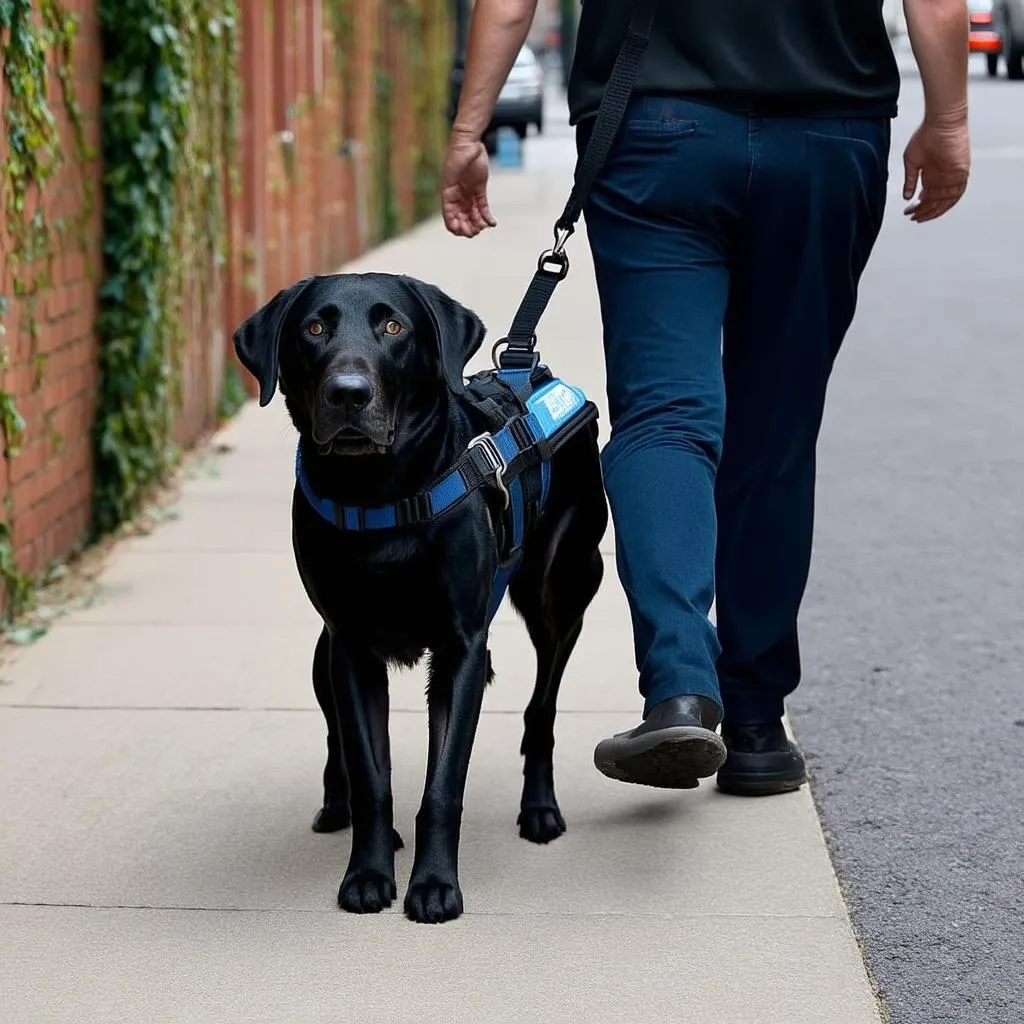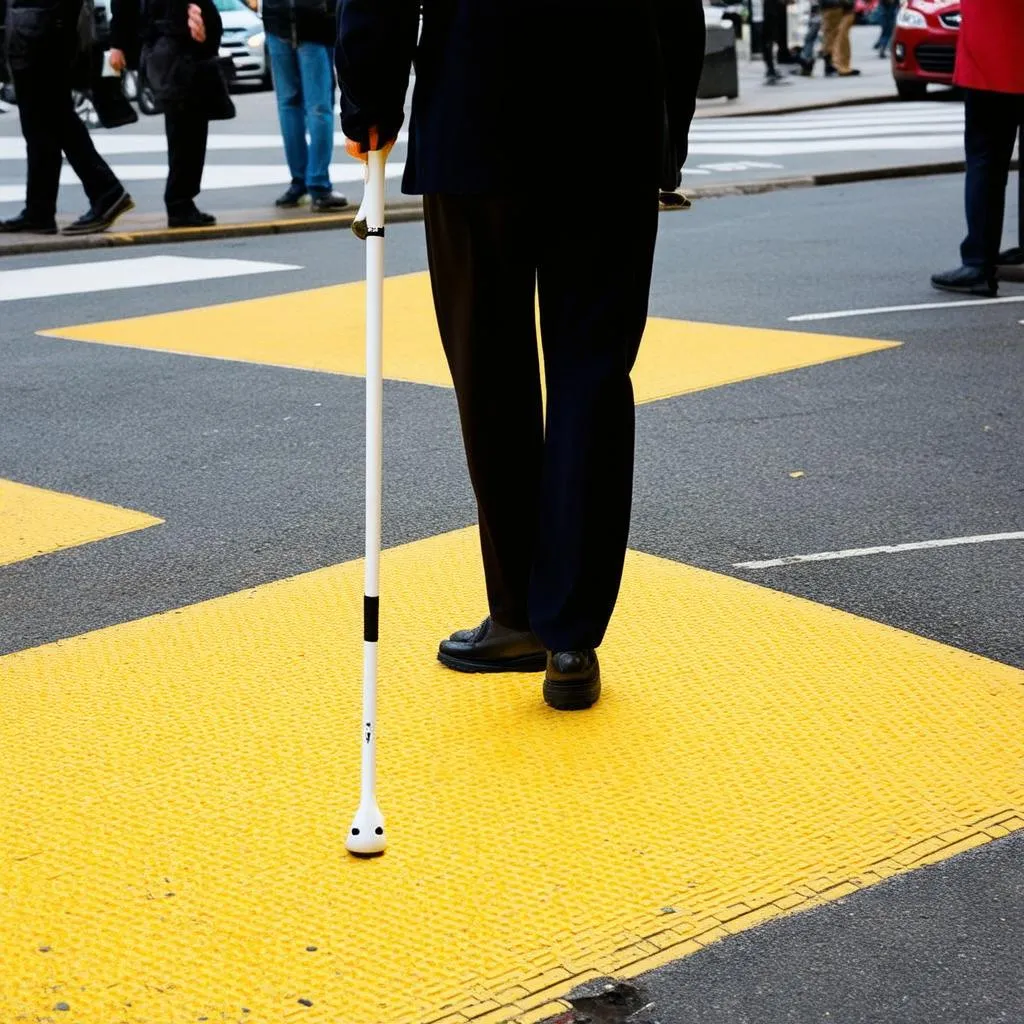Have you ever stopped to consider how someone with visual impairments navigates the world, especially in bustling cities like Hanoi with its vibrant Old Quarter or the ancient city of Hue? It’s an incredible testament to human adaptability and the power of assistive devices. One of the most crucial aspects of independence for a blind person is the ability to travel safely and confidently. This is where primary traveling aids come in. These tools act as extensions of their senses, allowing them to perceive their surroundings and navigate independently.
Understanding the Needs: Why Primary Traveling Aids are Essential
Imagine trying to find your way around a busy market like Ben Thanh Market in Ho Chi Minh City without sight. The sounds, smells, and even the press of the crowd can be overwhelming. For someone who is blind, these everyday experiences can be incredibly challenging and even dangerous without the right tools.
Primary traveling aids help to:
- Detect Obstacles: Identify changes in terrain, steps, curbs, and other hazards.
- Navigate Environments: Follow routes, cross streets, and find their way in both familiar and unfamiliar places.
- Increase Confidence and Independence: By providing a sense of control and reducing the reliance on others.
The Primary Traveling Aids for Blind Individuals
1. The White Cane: A Timeless Tool
The white cane is perhaps the most recognizable symbol of blindness and remains an essential tool for many.
- How It Works: By sweeping the cane from side to side, a person can detect objects in their path. The length of the cane is personalized to the individual’s height and stride.
- Benefits: Affordable, lightweight, and requires no batteries. It also serves as a visual cue to others, alerting them to the individual’s visual impairment.
- Limitations: Provides limited information about the environment beyond the immediate vicinity.
2. Guide Dogs: Loyal Companions and Skilled Navigators
A guide dog is more than just a pet; it’s a highly trained partner.
- How It Works: Guide dogs are trained to lead their handlers around obstacles, through crowds, and across streets. They learn intelligent disobedience, meaning they will disobey a command if it puts their handler in danger.
- Benefits: Offer companionship, emotional support, and increased mobility and freedom.
- Limitations: Requires extensive training and care. May not be suitable for everyone due to allergies, lifestyle, or living arrangements.
 Guide Dog Assisting Owner
Guide Dog Assisting Owner
3. Electronic Travel Aids: Technology Enhancing Mobility
Advancements in technology have led to the development of sophisticated electronic travel aids.
- Types: GPS devices designed for the visually impaired, smartphone apps with navigation features, and ultrasonic sensors that detect obstacles.
- How They Work: Use GPS, sound waves, or other technologies to provide information about the environment.
- Benefits: Can provide more detailed information about the surroundings, including landmarks, street names, and points of interest.
- Limitations: Can be expensive, require technical knowledge to operate effectively, and may not be as reliable in all environments.
Planning Your Trip: Travel Tips for Blind Individuals
Traveling as a blind individual requires careful planning. Here are some tips:
- Research Your Destination: Familiarize yourself with the layout of the city, available transportation options, and accessibility features.
- Inform Transportation Providers: Airlines, train companies, and hotels can often provide assistance if notified in advance.
- Pack Smart: Carry extra canes, batteries for electronic devices, and any other essential items.
- Connect with Local Organizations: Many countries have organizations dedicated to assisting blind travelers. They can provide valuable resources and support.
FAQs about Traveling Aids for the Blind
Q: How do blind people choose the right travel aid?
A: The choice depends on individual needs, lifestyle, and preferences. It’s best to consult with an orientation and mobility specialist to determine the most suitable option.
Q: Are there any government programs that assist with the cost of guide dogs or other aids?
A: Yes, many countries offer financial assistance or subsidies to cover some of the costs associated with these aids. Contact your local social service agency for more information.
 Navigating the City with a Cane
Navigating the City with a Cane
Embrace the Journey: Travelcar.edu.vn Supports Accessible Tourism
At TRAVELCAR.edu.vn, we believe everyone deserves to experience the joy of travel. We are committed to promoting accessible tourism and providing information and resources to empower travelers of all abilities. Whether you’re dreaming of exploring the scenic landscapes of Ha Long Bay or immersing yourself in the cultural tapestry of Hoi An, we’re here to help you plan an unforgettable journey.
For more tips and resources on accessible travel, visit our website or contact our team of travel experts. Let us help you make your travel dreams a reality!
